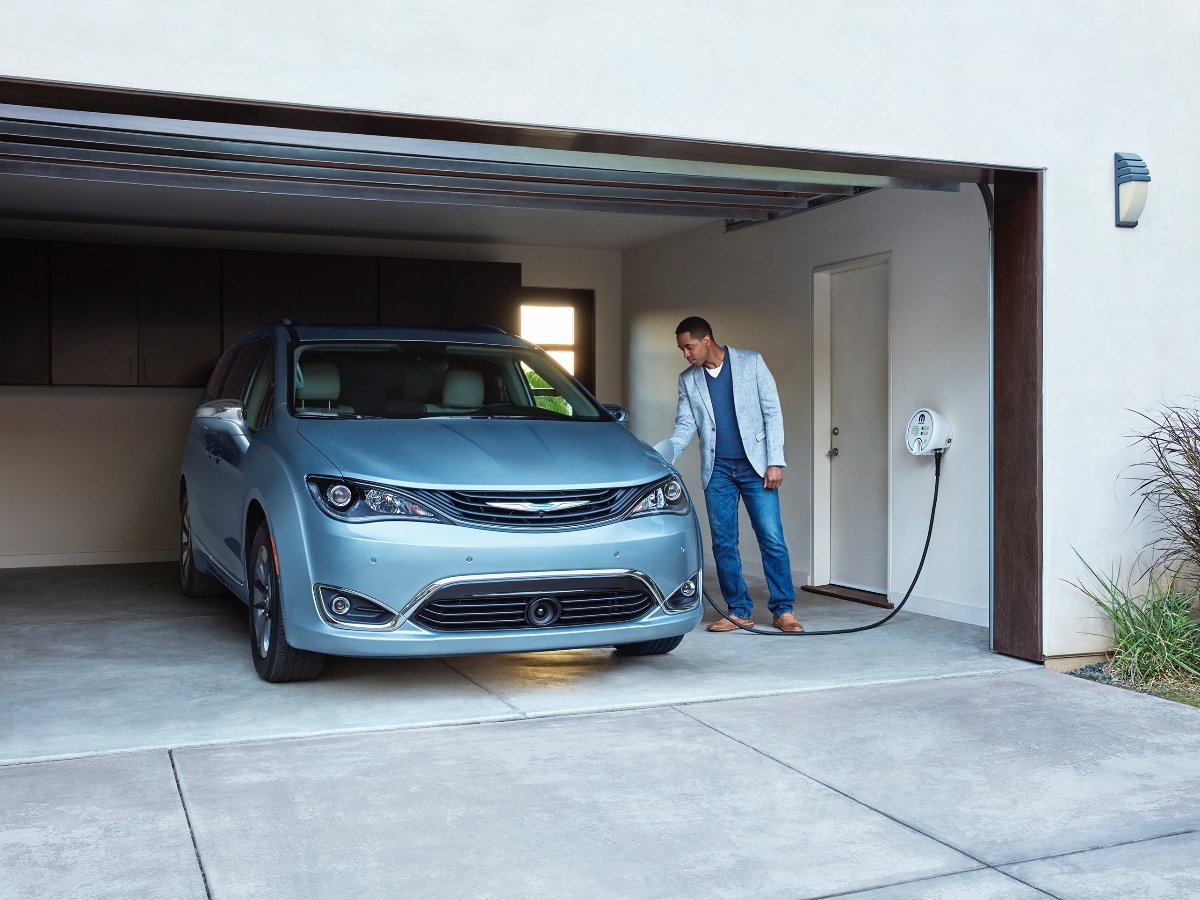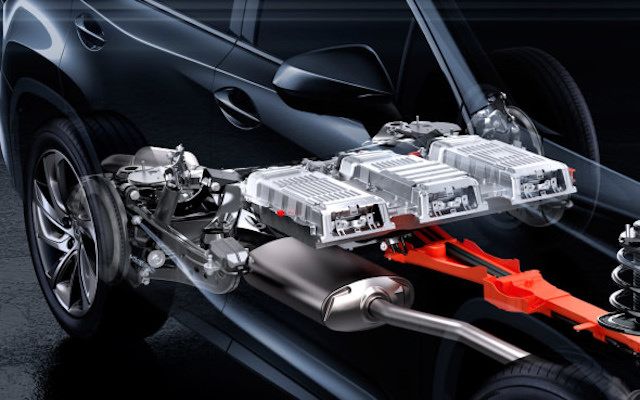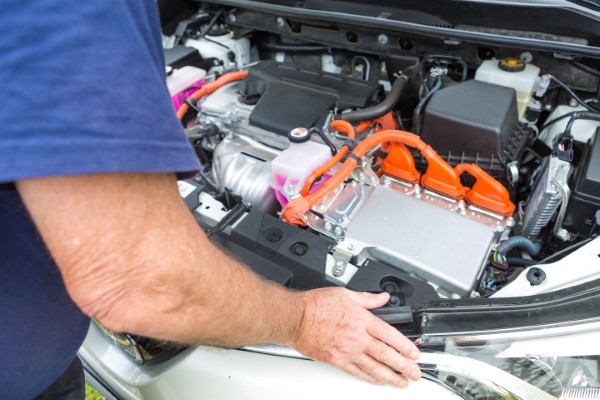Similar to a traditional gas engine, a hybrid vehicle’s battery can degrade over time and require maintenance. Hybrid car owners can spot potential battery issues by recognizing key warning signs. Unfortunately, replacing a hybrid battery can be costly. Continue reading to discover the indicators of a failing hybrid battery and gain insights into maintaining its health.
Signs of a Failing Hybrid Battery
Many hybrid owners may not be aware of the symptoms that signal a battery is aging or in need of repair or replacement. Below are some critical signs to monitor, so you can promptly take your vehicle to a mechanic. Pay close attention to these indicators, especially if your hybrid has recently been involved in a collision.
Decreased Fuel Economy
Hybrid vehicles are celebrated for their exceptional fuel efficiency, with some drivers reporting they only need to refuel once a month. If you find yourself making more frequent trips to the gas station or notice your car switching from electric to gas mode more often, this could indicate a problem with the hybrid battery.
Erratic Battery Charge Display
A common symptom of an aging or malfunctioning hybrid battery is an inconsistent reading on the vehicle’s battery charge display. The sensor may struggle to accurately gauge the remaining charge, causing the display to fluctuate rapidly between low and nearly full. This unreliability can make long trips or highway driving challenging.
Slow Battery Charging
Most hybrid owners charge their vehicle’s battery overnight to prepare for the next day’s driving. Depending on the car’s model and age, a full charge typically takes 6 to 12 hours. If your battery consistently fails to reach a full charge within the expected time; say, only reaching 80%; or loses its charge more quickly than usual, it may be leaking charge. This can lead to higher electricity bills or increased costs at charging stations.

Persistent Check Engine Light
Whenever the check engine light illuminates, it’s crucial to have your vehicle inspected. In hybrids, this light may signal a battery issue, such as a short circuit. Using a diagnostic tool to check your car’s onboard system can help pinpoint the problem. Acting quickly when the check engine light appears can extend your vehicle’s lifespan.
Frequent Switching to Gas Mode
Hybrid drivers typically rely on the electric motor for city or local driving, reserving the gas engine for highways or when the battery is low. If your vehicle switches to the gas engine more often than expected, even when the battery should be sufficiently charged, this suggests a potential issue with the hybrid battery.
Monitoring Hybrid Battery Health
Depending on your hybrid’s onboard computer system, you may be able to check the battery’s health at home. However, specialized diagnostic tools are often required, which means a visit to a hybrid mechanic. Avoid using diagnostic tools designed for gas-powered vehicles, as they could harm the battery or provide inaccurate readings.
For Prius owners, a visit to a Prius Auto Care Center is recommended. Their technicians use a diagnostic service called Tech Stream to assess the battery’s power and energy levels.
For other hybrid models, if you’re familiar with the onboard diagnostic system, you can evaluate the battery’s health independently. Alternatively, you can purchase hybrid-specific testing tools to connect directly to the battery for a detailed assessment.
When Should a Hybrid Battery Be Replaced?
The need for a hybrid battery replacement is typically determined by either the vehicle’s mileage or its age. With proper care, a well-maintained hybrid battery can last 10 to 15 years. In terms of mileage, most owners consider replacing the battery after 100,000 miles, with replacement becoming more likely by 150,000 miles, even if no issues are apparent.
At around 100,000 miles, many vehicles, including hybrids, may start requiring costly repairs. This is why high-mileage cars are often less desirable, though they can be more affordable for budget-conscious buyers. The fuel savings from a hybrid’s electric mode can help offset the cost of a future battery replacement.
NOTE:
Be aware of your battery’s warranty period, as it may cover a free replacement if the battery fails within the warranty timeframe. Most hybrid battery warranties last 8 to 10 years, but extended warranties may be available at purchase. Check with your dealership for details.
Cost of Replacing a Hybrid Battery
Replacing a hybrid battery is a significant expense, much like replacing a battery in a non-hybrid vehicle. Costs can vary widely, ranging from $1,000 to $6,000, with premium batteries potentially reaching $15,000; enough to buy a used hybrid car!
Given the high cost, it’s wise to save regularly for a potential battery replacement. Setting aside funds every few months can ease the financial burden when the time comes.

Insurance Coverage for Hybrid Batteries
In some non-accident-related cases, your insurance provider may cover part or all of the cost of a hybrid battery replacement. Since hybrid car insurance is pricier than standard policies, review your policy to understand what repairs or replacements are covered.
Warranties for Hybrid Batteries
When purchasing a new hybrid battery, ensure it comes with a warranty of at least five years. In California, hybrid batteries are automatically covered for 10 years or 100,000 miles, offering peace of mind if the battery fails prematurely.
Is Replacing a Hybrid Battery Worth It?
When faced with an expensive repair, many car owners weigh whether to fix their vehicle or invest in a new one. For a hybrid battery replacement costing $3,000 to $5,000, the decision depends on your car’s overall condition. Have a mechanic inspect the vehicle for signs of wear or maintenance issues.
If the car is in good shape, replacing the battery is likely a worthwhile investment. However, if multiple costly repairs are needed, selling the car for parts and putting the funds toward a new vehicle may be more practical.
Considering Used Hybrid Batteries
If a new battery is too expensive, a used hybrid battery could be an option. While not in pristine condition, a used battery for a $5,000 new battery might cost around $2,500. Research online tutorials to learn how to test a used battery’s condition before purchasing.
Gas-Only Driving Isn’t an Option
Some owners might consider relying solely on the gas engine to avoid replacing the hybrid battery. However, this isn’t feasible, as the battery powers essential electrical components like the radio, sensors, and even steering and braking systems.
Salvaging Your Hybrid Battery
Unlike standard car batteries, hybrid batteries, such as those in a Prius, consist of multiple fuel cells (typically 22 to 34). Often, only a few cells are faulty, causing the battery to underperform. A certified mechanic can replace these defective cells, restoring the battery’s performance at a fraction of the cost; around $1,000 to $1,400 for the cells, plus labor.

